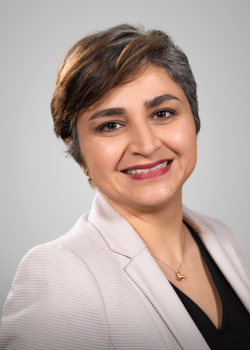Keynotes
Towards a Science of Trustworthy Artificial Intelligence
Abstract
There has been an increasing interest in the role of ethics in artificial intelligence and in the notion of Trustworthy AI, in particular. The European Commission has invested significant effort in setting out its strategy and its vision for the importance of delivering Trustworthy AI, including the proposal of a new regulatory instrument, the AI Act. In this talk I will give an overview of the policy context in relation to Trustworthy AI. I will give an overview of the scientific challenges associated with ensuring that AI and data-driven systems are trustworthy. I will highlight some applications that combine AI, in particular constraint programming and optimisation, with simulation-based methods, and the opportunities that these techniques offer in delivering Trustworthy AI.
Curriculum Vitae
Barry O'Sullivan holds the Chair in Constraint Programming at University College Cork in Ireland. He is the founding Director of the Insight Centre for Data Analytics at UCC, Principal Investigator at the Confirm Centre for Smart Manufacturing, and Director of the Science Foundation Ireland’s Centre for Research Training in AI. He is an Adjunct Professor at Monash University, Australia. Professor O’Sullivan was vice chair of the European Commission High-Level Expert Group on AI and a scientific advisor to AI Watch, an initiative of the European Commission’s Joint Research Centre tasked with monitoring the uptake of AI in Europe. He is an award-winning academic working in the fields of artificial intelligence, constraint programming, and operations research. He also works in AI and data ethics, as well as public policy-making related to AI. He has a keen interest in the commercialisation of AI and is involved in a number of startup companies. Professor O’Sullivan is a Fellow of the Association for the Advancement of Artificial Intelligence, a Fellow and a past President of the European AI Association, Fellow of the Irish Academy of Engineering, Fellow of the Irish Computer Society, and Member of the Royal Irish Academy.

Director, Insight Centre for Data Analytics School of Computer Science & IT, University College Cork
Cork, Ireland
From Zero to Supersonic: How Flight Dynamics Simulation is Helping Airbus to shape the Future of Flight
Abstract
Flight dynamics simulation has been for decades a key element that has helped Airbus to write numerous success stories in the annals of military aviation. Presently, with the exponential growth of the aerial platforms’ complexity, simulation is more than ever an essential tool when it comes to the development of embedded flight control software for more efficient and agile platforms.
This talk aims to provide an insightful overview of the simulation capabilities and the advanced methodologies that Airbus Defence and Space is using to design, validate and verify the Flight Control Laws of some of its current and future products, from the Automatic Takeoff and Landing operations with UAVs, to the Eurofighter Typhoon, among others.
Curriculum Vitae
Rodney Rodriguez Robles currently works in the Flight Dynamics & Control Laws Department of Airbus Defence and Space, at Getafe site. He received his Diploma (M.Sc.) in Aerospace Engineering in 2011 from the Polytechnic University of Madrid, Spain. Since then, he has been working in different aircraft programs like the Tactical Unmanned Aerial System ATLANTE, the Eurofighter Typhoon and the C295 military aircraft versions. Key features of the performed tasks in the ATLANTE system cover the areas of Flight Control Laws design, development of stochastic methods for Clearance assessments, and development and validation of simulation models based on flight test data matching. During late 2012 he also participated in the development of the sloshing mechanical models of the C295 OSD version and different adaptive optimization algorithms to accelerate the finding of the worst case scenario during the Eurofighter Typhoon Flight Control Laws Clearance assessments. Throughout the last years, he has been involved in the research and development works focused on the field of adaptive aeroservoelastic coupling cancellation for the A330 MRTT Flying Boom Control Laws and distributed control for Autonomous Assets Air to Air Refuelling (A4R).
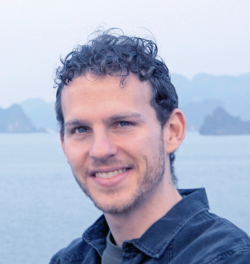
Flight Dynamics & Control Laws Engineer
Airbus Defence and Space
Getafe, Spain
Advanced Simulation Methods for Intelligent Transport Systems
Abstract
Intelligent Transport Systems (ITS) are transforming the European diverse infrastructure and transportation networks. Data-driven, cooperative and autonomous approaches are used within ITS to optimize traffic flow, enhance safety, and promote sustainable mobility solutions.
Simulation modelling plays a crucial role in developing and implementing effective ITS strategies. This allows us to test and evaluate new technologies and infrastructure modifications in a safe and controlled environment through virtual representations and modelling. This data-driven approach helps us identify potential bottlenecks, optimize traffic management strategies, and ensure a smooth integration of ITS solutions within existing European infrastructure.
Curriculum Vitae
Dr Fatemeh Golpayegani is an assistant professor in the school of Computer Science, University College Dublin. She received her phd from Trinity College Dublin in 2018 and joined UCD in 2019. She founded and is leading the Multiagent and sustainable solutions research group, including 3 postdoctoral researchers, and 6 PhD students. Within her research group the main focus is on developing AI-powered decision making algorithms, and optimisation algorithms for complex systems and environments. Her research is applied in several fields including Intelligent Transport Systems, Power Systems and Bio systems.
She has secured over 2 million euros in funding through international and national sources. Specifically she is coordinating an MSCA SE project, RE-ROUTE funded under Horizon Europe. She is the co-PI of another EU project, Augmented CCAM. She is funded investigator of SFI research centres, including BiOrbic, CONNECT, I-Form. And funded supervisor in SFI research and training centres ML- labs and d-real.
She is a member of Young Academy Ireland and has been awarded the prestigious IRC Ulysses grant.
Lessons learned in delivering 300+ Models
Abstract
I have been working as a professional data scientist and AI expert for the past 5+ years in the industry. In this talk, I am sharing the most important lessons I have learned in delivering 300+ models on production. The core focus will be on adding business value using machine learning and AI, and how different it is from academic work.
Curriculum Vitae
to be added in
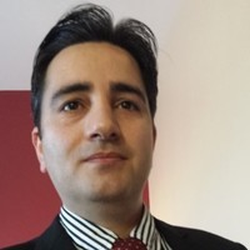
Head of Big Data & AI at Vodafone
Dublin, Ireland
Invited Speakers
Financial and Business Cycles: Statistical and Econometric Models
Abstract
The problem of a possibility of a risk-free trading at a stock exchange is one of the central in Financial Analysis. Is it possible to beat the market (accounting for the transaction costs and time value for money) without any risk exposure? If so, under what conditions this is possible? In this paper we offer our answers to these important questions using our novel theory of cycles. This theory is two-fold (a) Statistical Models: studying the time-series of the financial asset prices, without trying to explain the fundamental reasons for the cycles and (b) Econometric Models: explaining and predicting cycles from the Economic reasoning.
Our Statistical are date-based, they do not employ any economic indicators or economic principles. The models we suggest are based on the following cornerstones:
- Formal Statistical definition of cycles, speculative cycles and speculative time-series.
- How common in real world the speculative time series are?
- Optimal trading strategies for the speculative series.
- Smoothing and error reduction models for financial cycles.
The Econometric Models can further improve the trading strategies as they allow predicting the direction of the market moves.
The classical business cycle (CBC) is defined as a succession of expansion and contraction phases. It is gotten in searching the turning points of the real GDP series. A trough is the analogue of a local minimum and marks possibly the beginning (resp. the end) of an expansion (resp. recession); a peak is the analogue of a local maximum and signals the coming (resp. the end) recession (resp. expansion). Identifying the ups and downs of the economy is done using the BBQ algorithm (Bry-Boschan Quarterly). The application of this procedure to GDP provides a chronology of the business cycle in the form of a binary series consisting of zeros and ones.
In a second step, a dynamic probit model, i.e. a qualitative econometric model, is used to predict recessions. The dependent variable is given by the binary series, whilst the explanatory variates are essentially financial, for example the yield curve or the credit expansion. The model finally yields recession probabilities for a determined economy.
The lecture will be followed by a tutorial where the new models will be illustrated with computational examples with reals data and simulations.
Curriculum Vitae Igor Litvine
Igor Litvine completed his Masters degree in Applied Mathematics with Distinction in 1980 (Kiev Shevchenko University, Ukraine). In 1984 he received his PhD in Applied Statistics at the same University. In 2016 he received the Doctor in Economics Degree from the University of Lorraine, France. Prof Litvine was employed by the following Universities: Kiev Shevchenko University (1984‐1989), Addis-Ababa University (1989‐1993), National University of Lesotho (1993‐1994), and Nelson Mandela University ‐ previously University of Port Elizabeth (1995‐now). Visiting Professorship in the University of Fort Hare (RSA), Sultan Qaboos University (Oman), University of Information and Communication Technologies (Ukraine) and University of Lorraine (France). Prof Litvine was serving as an External Examiner in the following Universities: University of Fort Hare, Free State University, Rhodes University, University of Pretoria, Addis-Ababa University, and University of Lorraine. Prof Litvine authored about a hundred papers, one monograph and three textbooks. Current research interest is in Statistical and Econometric Modelling of Financial Cycles. At the last ESM2019 conference in Spain, the paper Quarter Circular Wavelets for Business and Financial Cycles received the Best Paper award.
Curriculum Vitae Francis Biesmans
Francis Biesmans obtained his Master Degree from the University of Liège, Belgium, with Great Distinction. In 1988, he received his PhD in Economics at the same University
(Greatest Distinction). He also received training in Mathematical Statistics and Econometrics at the Catholic University of Louvain.
He was employed by the following institutes and universities: University of Lille, and Ecole des Mines, France, ICHEC, Belgium, and finally, the University of Lorraine as
Aggregate Professor (Professeur des Universités) in Economics and Statistics. He was Director of the master "Engineering of Market Finance" , master with double degree between
the universities of Lorraine, Poznan and Lisbon.
He was also Visiting Professor in the Universities of Poznan (Poland), Lisbon (Portugal) and Nelson Mandela (South Africa).
Prof Biesmans' main research topics are:
- General and financial macroeconometrics (econometrics theory and practice, time series, panel data, probit models)
- Economic fluctuations (business cycles; forecasting of recessions)
- Economics of energy
Curriculum Vitae Farai F Mlambo
Farai is a full-time academic and emerging researcher based at the School of Statistics and Actuarial Science at the University of the Witwatersrand, based in Johannesburg, South Africa.
Farai is also a researcher at the Wits Institute of Data Science (WIDS), housed within the School of Computer Science & Applied Mathematics at the University of the Witwatersrand. Before
joining the University of the Witwatersrand, Farai was employed as a Statistical Analyst, Institutional Researcher and Lecturer at Fever Tree Finance, Office of the Vice-Chancellor and
Department of Statistics at Nelson Mandela University (NMU) respectively. Farai also served as the Deputy-Director of Statistics at the Cultural Observatory in Port Elizabeth.
Farai's PhD thesis was titled "Wavelet Theory: for Economic and Financial Cycles". Farai's other qualifications are: MCom Statistics (Cum-Laude), BCom Hons Mathematical Statistics
(Cum-Laude) & BCom Economics and Statistics (Cum-Laude), from NMU - formerly called the University of Port Elizabeth. Farai received more than ten top achievement academic awards at NMU.
These include the NMU Council Award for the Best Honors Degree in Science, Engineering and Technology, the NMU Council Award for the Best Initial Degree Award in the Faculty of Business
and Economic Sciences and the Golden Key International Honor Society New Member Chapter Award.
Farai co-authored the Best Paper of the 2019 European Simulation and Modelling Conference with Professor Igor Litvine, his PhD supervisor. Farai has also presented scientific papers at
various local and international conferences, workshops and seminars. Farai is also a past recipient of the Department of Science and Technology (DST) - National Research Innovation and
Doctoral Scholarship (NRF) Award and is also a certified member of the Institute of Certified and Chattered Statisticians of South Africa (ICCSSA).
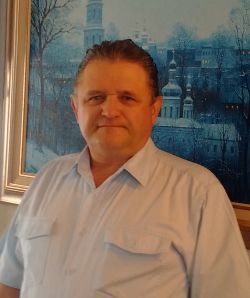
Centre of Expertise in Forecasting
Nelson Mandela University
Port Elizabeth, South Africa
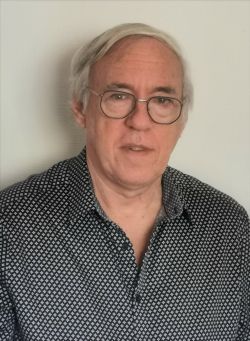
BETA and COEF
University of Lorraine
France
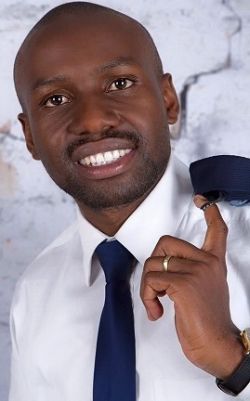
School of Statistics and Actuarial Science
University of the Witwatersrand
South Africa
